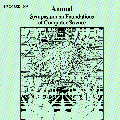We show a number of fine-grained hardness results for the Closest Vector Problem in the $\ell_p$ norm ($\mathrm{CVP}_p$), and its approximate and non-uniform variants. First, we show that $\mathrm{CVP}_p$ cannot be solved in $2^{(1-\varepsilon)n}$ time for all $p \notin 2\mathbb{Z}$ and $\varepsilon > 0$, assuming the Strong Exponential Time Hypothesis (SETH). Second, we extend this by showing that there is no $2^{(1-\varepsilon)n}$-time algorithm for approximating $\mathrm{CVP}_p$ to within a constant factor $\gamma$ for such $p$ assuming a "gap" version of SETH, with an explicit relationship between $\gamma$, $p$, and the arity $k = k(\varepsilon)$ of the underlying hard CSP. Third, we show the same hardness result for (exact) $\mathrm{CVP}_p$ with preprocessing (assuming non-uniform SETH). For exact "plain" $\mathrm{CVP}_p$, the same hardness result was shown in [Bennett, Golovnev, and Stephens-Davidowitz FOCS 2017] for all but finitely many $p \notin 2\mathbb{Z}$, where the set of exceptions depended on $\varepsilon$ and was not explicit. For the approximate and preprocessing problems, only very weak bounds were known prior to this work. We also show that the restriction to $p \notin 2\mathbb{Z}$ is in some sense inherent. In particular, we show that no "natural" reduction can rule out even a $2^{3n/4}$-time algorithm for $\mathrm{CVP}_2$ under SETH. For this, we prove that the possible sets of closest lattice vectors to a target in the $\ell_2$ norm have quite rigid structure, which essentially prevents them from being as expressive as $3$-CNFs. We prove these results using techniques from many different fields, including complex analysis, functional analysis, additive combinatorics, and discrete Fourier analysis. E.g., along the way, we give a new (and tighter) proof of Szemer\'{e}di's cube lemma for the boolean cube.
翻译:我们以 $\ $_ p$ cVVVP_p$ 来显示精确的硬度结果。 首先, 我们显示, $\ marm{ CVP} p$ 无法在 2 $\ (1-\\ varepsilon) 中解析 。 假设 $2\\ mathb% 和 $\ varepsilon > 0美元, 假设 强烈的披露时间 $_ p$ (SETH), 我们通过显示 $2\ 美元( 1\\ varepp_ p$ $ ) 和它的近似或非统一变异的变异性 。 以“ 美元, 美元, 美元, 美元, 美元, 美元, 美元, 美元, 美元, 而 美元, 美元, 美元, 美元, 美元, 而 美元, 美元, 美元, 美元, 美元, 美元。 第二, 我们通过显示 美元, 美元, 美元, 美元, 美元, 美元, 美元, 美元, 美元, 美元, 美元, 美元, 美元, 美元, 美元, 美元, 美元, 美元, 美元, 美元, 美元。




